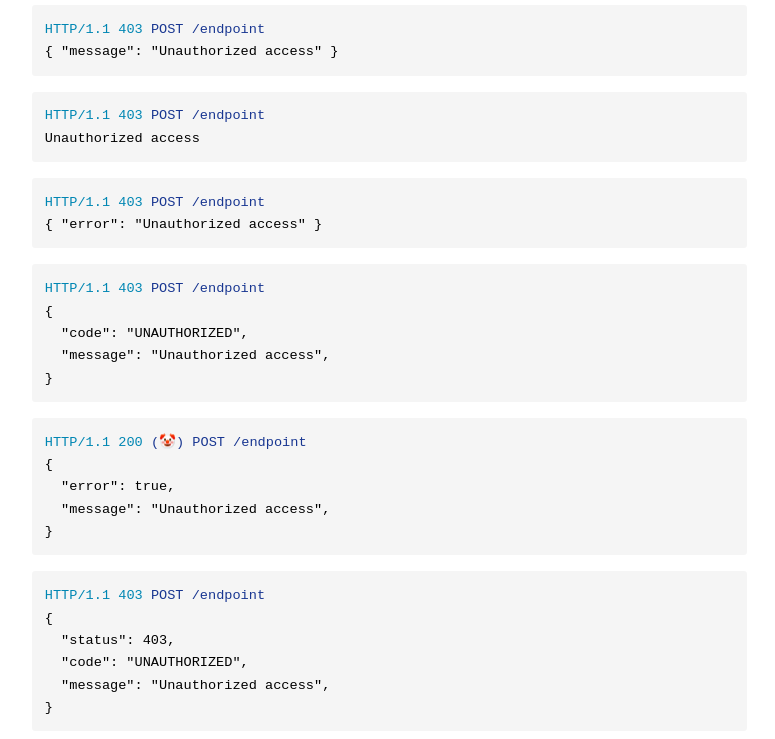this post was submitted on 30 Aug 2024
129 points (99.2% liked)
Programming
17494 readers
37 users here now
Welcome to the main community in programming.dev! Feel free to post anything relating to programming here!
Cross posting is strongly encouraged in the instance. If you feel your post or another person's post makes sense in another community cross post into it.
Hope you enjoy the instance!
Rules
Rules
- Follow the programming.dev instance rules
- Keep content related to programming in some way
- If you're posting long videos try to add in some form of tldr for those who don't want to watch videos
Wormhole
Follow the wormhole through a path of communities !webdev@programming.dev
founded 1 year ago
MODERATORS
you are viewing a single comment's thread
view the rest of the comments
view the rest of the comments

Yes, the more information and standards in an api response the better. There should be front end messages and developer messages. URL links to documentation are great too. Standards assist automation and testing.
I understand other viewpoints about maintenance and redundancy, this can cause errors. And the above is too much work for some projects .
But most api start as a temporary or one person project. It’s tempting to be terse and cool with responses . Even more tempting is this is a great cost cutter to not have overly detailed responses.
However
It’s much easier to add in more data to responses now than later. And a future you years later, or strangers who use it , will be grateful. It may be the thing that allows an api to be popular, rather than people use it despite the api